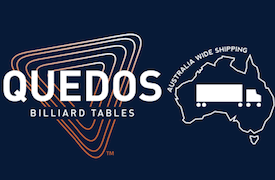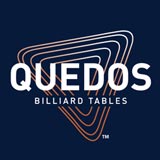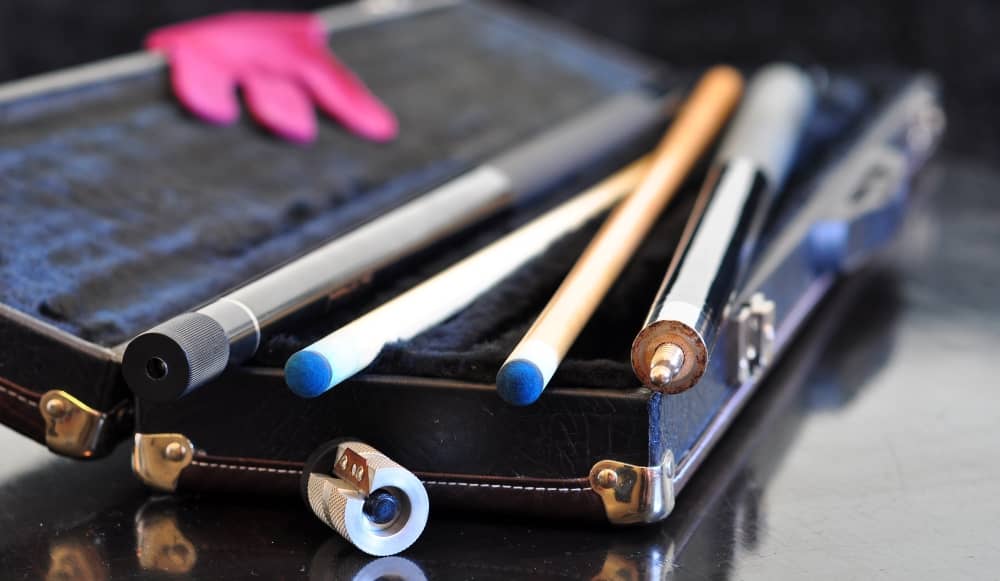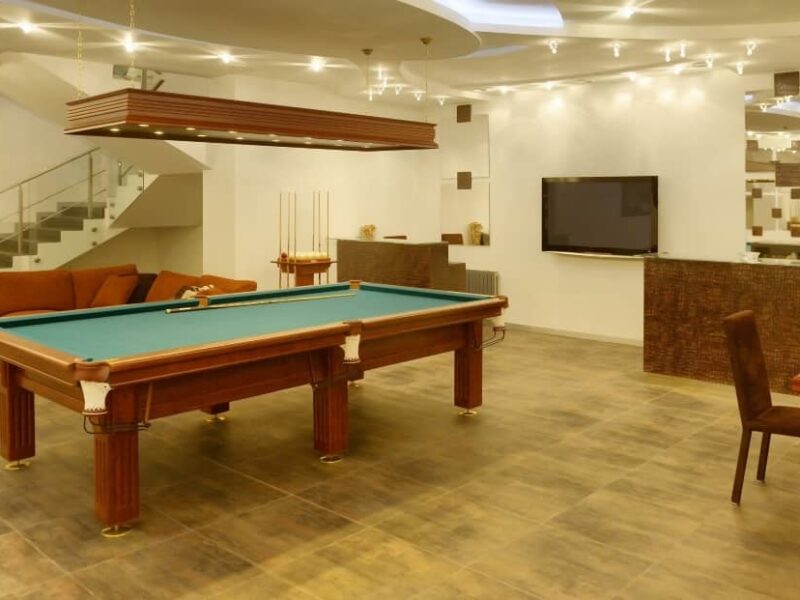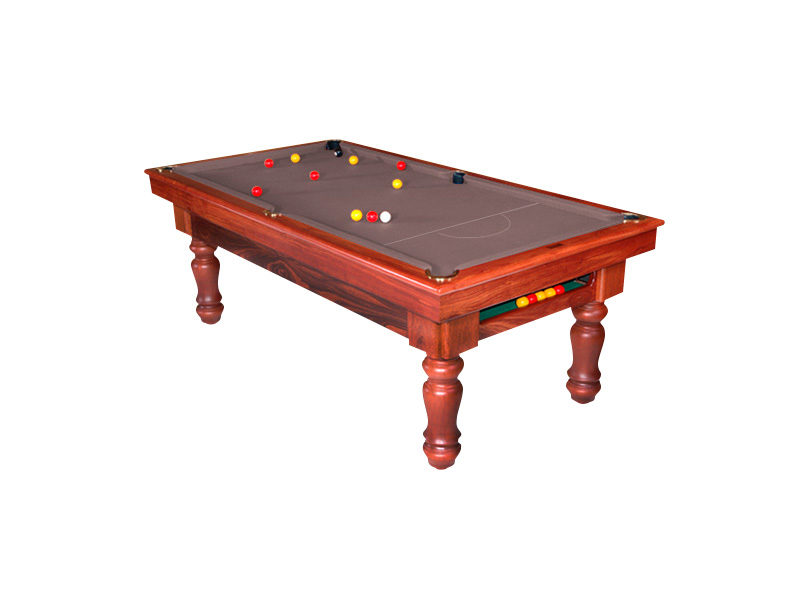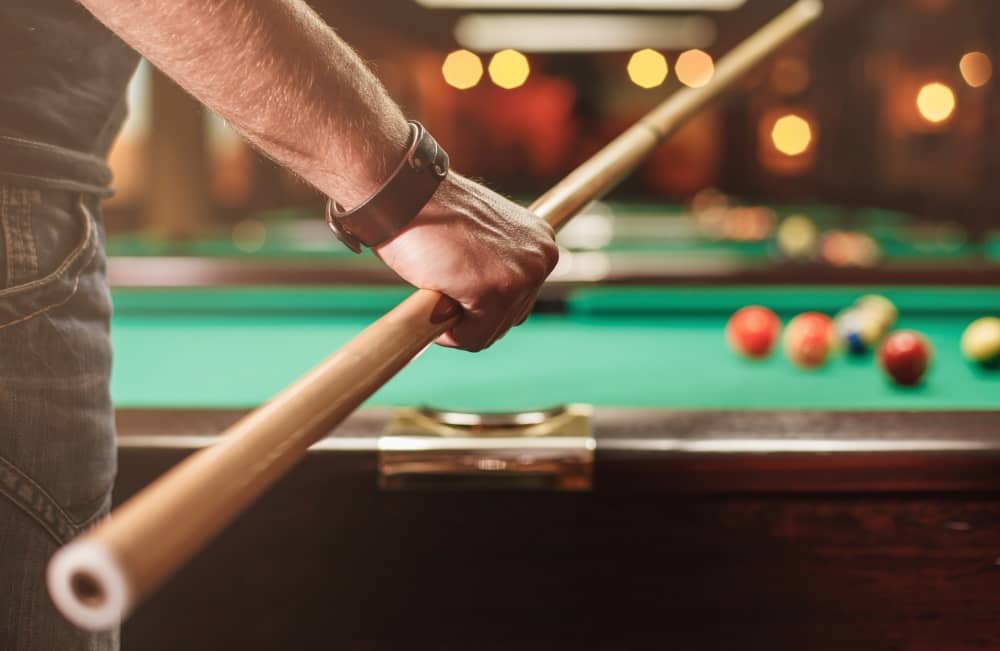
Different Types of Cues for Pool, Snooker or Billiards
If you decide to stop by your local bar or pool hall to play an hour of pool/billiards/snooker, you would most likely settle for using whatever equipment the facility is making available. That’s fine if you fancy yourself as being a recreational player. If by chance you wish to up your pool/billiards/snooker game, you might want to consider buying your cue.
Can a cue make a difference? Absolutely. As is the case with other activities such as bowling, golf, frisbees and darts, using better equipment will usually result in more proficiency at the designated game. In the case of pool/billiards/snooker, the cue could make a significant difference in your ability to play the game at a higher level of proficiency.
The following information is going to focus on three things: what makes a good cue, the different types of cues from which you could choose, and why the quality of a pool/snooker cue matters.
What Makes a Good Cue?
Not all cues are created equal. Some cues are made with low-quality materials while the high-end cues are made with higher-end materials. They also come in different shapes and sizes (more on that below). In this section, we are going to focus on the materials that are used to make a good cue.
A typical private/custom cue will come in two sections separated by a joint that allows the user to easily connect and reconnect the two sections via a screwing action. The bottom section is often referred to as the base with the top portion called the shaft. In most cases, quality pool cues are made from ash wood. At the end of the shaft, you would find the ferrule, which is a metal (best option) or plastic piece that holds the tip. The tip is typically made from coarse leather, which serves to hold the chalk on the tip.
By rule, a strong and sturdy cue will deliver a better stroke and allow for better control of the cue ball. A really good leather tip will also contribute to the ability to use “English” for control over the cue ball. Yes, the finest cues are made with the finest materials.
Two Types of Pool Cue
Pool and billiards are slightly different games. When compared to those two games, snooker is quite a bit different with different rules and objectives. Because of various factors, pool cues and snooker cues are different. The primary reason why the cues differ is because of the size of the cue ball.
A standard pool/billiard cue ball will measure 1 7/8 inches in diameter for an English cue ball while the standard American cue ball measures 2 1/4 inches in diameter. The typical snooker cue ball measures 2 1/16 inches in diameter. To be able to control the cue ball, the different sizes of cues require the use of different types of cues.
English pool cues tend to have thinner shafts and smaller tips to accommodate the smaller English pool cue ball. The tip normally measures about 8-9 mm wide. Yes, American cues are usually a little thicker with a larger tip (12-13 mm) to accommodate the larger cue ball. Conversely, snooker cues are thicker and made sturdier with a tip that measures 9-10 mm.
As for sturdiness, a cue’s shaft is rated based on its deflection rating. Deflection refers to the speed at which the cue ball comes off the cue when struck. The lower a cue’s deflection, the more control the cue will give to the player. Interestingly, the cues with the lowest deflection rating are the ones made with carbon fibre. The use of carbon fibre shafts has picked up in recent years in terms of popularity among the professional pool and snooker players.
What About Billiards Cues?
We must define the term billiards. In some circles, billiards is a generic term that describes any table game that is played with a cue ball, balls, and a cue. Under this definition, pool and snooker would be considered types of billiards options.
Conversely, some people will use the term billiards to describe the English game called “carom billiards.” Caron billiards is similar to snooker in that the table has no pockets. With that said, billiard balls are the same size as pool balls. That points to pool cues being the better choice when playing carom billiards.
Why the Quality of the Cue Matters
Really good pool players can do one thing very well, that is to control the cue ball. Control of the cue ball matters a great deal because it opens the door for players to get from one shot to the next shot, making each successive shot as easy as possible.
Two things play a role in cue ball control, the player’s touch and the quality of the cue. “Bangers” are poor pool/snooker players because they tend to only focus on making one ball at a time. Real pool/snooker players will look at a broken rack and envision how they can move around the table to put all of the balls in their allotted places.
A straight and strong pool/snooker cue with a high-quality leather tip and a low deflection rating is the optimum piece of pool/snooker equipment. The base and shaft shapes can always be customized to suit a player’s specific needs. The proper and best-fitting pool cue based on the game and the player’s profile will contribute to making the player as proficient as possible, often depending on their skill level.
If you are ready to move your pool/snooker game up to the next level, you should start by getting your cue or upgrading over the cue you have now at Quedos. If you can’t find a “stock” cue that feels right, you might want to visit The Cue Shop and see about getting a custom cue that feels right for you.
